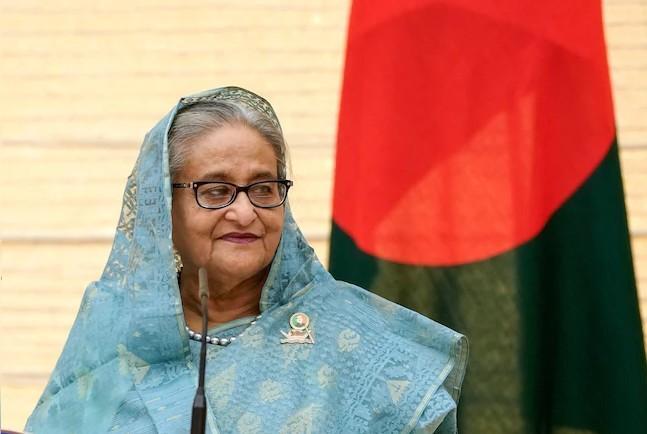
I don’t care about verdict, Allah gave life & he will take it: Sheikh Hasina
In a bold and unyielding statement, ousted former Bangladesh Prime Minister Sheikh Hasina has expressed her indifference towards the impending verdict of the International Crimes Tribunal, slated to be announced on Monday. The tribunal has been investigating war crimes committed during Bangladesh’s liberation war in 1971, and Hasina, who has been a prominent figure in the country’s politics, is facing serious charges. However, in a remarkable display of conviction and faith, she has declared that she is not concerned about the outcome of the verdict.
“Allah gave me life, Allah will take it…I’ve lost my parents, my siblings, and they burnt down my home,” Hasina said, reflecting on the numerous challenges and tragedies she has faced throughout her life. Her words convey a sense of acceptance and surrender, as if she has come to terms with the fact that her life is in the hands of a higher power. This statement is not only a testament to her unwavering faith but also a demonstration of her courage and resilience in the face of adversity.
Hasina’s son, Sajeeb Wazed, has also spoken out about the tribunal, stating that it is likely to sentence his mother to death. This prediction has sparked widespread concern and outrage among Hasina’s supporters, who believe that the tribunal is biased and that the charges against her are politically motivated. The tribunal has been criticized for its lack of transparency and fairness, with many arguing that it is being used as a tool to silence opposition voices and consolidate power.
The International Crimes Tribunal was established in 2009 to investigate and prosecute individuals responsible for war crimes, crimes against humanity, and genocide committed during Bangladesh’s liberation war. The tribunal has been controversial from its inception, with many questioning its legitimacy and impartiality. The fact that the tribunal is trying Hasina, a former Prime Minister and a prominent opposition leader, has raised concerns about the politicization of the judicial process.
Hasina’s case is particularly significant, given her stature and influence in Bangladesh’s politics. She has been a vocal critic of the current government and has been accused of being a threat to national security. The charges against her are serious, and if convicted, she could face the death penalty. However, Hasina remains defiant, stating that she is not afraid of the verdict and that she is willing to accept whatever fate has in store for her.
The reaction to Hasina’s statement has been mixed, with some praising her courage and conviction, while others have criticized her for being reckless and irresponsible. However, it is essential to understand the context in which she made this statement. Hasina has faced numerous challenges and tragedies throughout her life, including the assassination of her father, Sheikh Mujibur Rahman, and the burning down of her family home. She has also been the target of political persecution and has spent years in exile.
In this context, Hasina’s statement can be seen as a reflection of her deep-seated faith and her trust in a higher power. It is also a testament to her unwavering commitment to her principles and her refusal to back down in the face of adversity. Whether or not one agrees with her politics, it is impossible to deny the fact that Hasina is a woman of immense courage and conviction.
As the verdict of the International Crimes Tribunal approaches, the world is watching with bated breath. The outcome of the trial will have significant implications for Bangladesh’s politics and its people. While Hasina’s statement may be seen as a sign of defiance, it is also a reminder of the human cost of politics and the sacrifices that individuals make for their principles. Regardless of the verdict, Hasina’s legacy as a courageous and principled leader will endure.
In conclusion, Sheikh Hasina’s statement is a powerful reminder of the importance of faith, courage, and conviction. As she faces the verdict of the International Crimes Tribunal, she remains unyielding and defiant, trusting in a higher power to guide her through these challenging times. While the outcome of the trial is uncertain, one thing is clear: Hasina’s legacy as a courageous and principled leader will continue to inspire and motivate people around the world.






